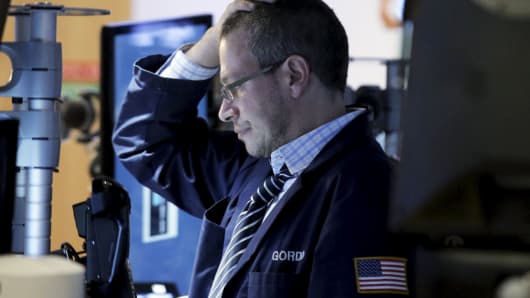In an effort to boost financial markets, global central banks have sapped their momentum even more, one market watcher contended Friday.
The European Central Bank and Bank of Japan have cut benchmark interest rates to negative territory, leading to speculation that theFederal Reserve may consider doing the same. By considering negative interest rates, the Fed could strike more fear into already skittish investors, said David Kelly, chief global strategist at JPMorgan Asset Management.
“At some stage, the medicine becomes a poison,” he told CNBC’s”Squawk on the Street,” adding that negative interest rates are a “ridiculous policy.”
Negative interest rates are by no means a sure bet. In her two-day testimony to Congress this week, Fed Chair Janet Yellen said she would not rule them out, but noted that the Fed would need to evaluate its effects before considering it.
On Friday, New York Fed President William Dudley quashed the speculation, saying that even discussing it was “extremely premature” due to what he deemed a healthy U.S. economy.
In current conditions, investors already “don’t see a lot of upside,” Kelly said. Negative interest rates would sow more doubt and “hurt confidence,” he contended.
Kelly argued that the recent pullback in stocks looks disconnected from economic fundamentals. Indicators of labor market and consumer health show “no sign of weakness.”
A spike in U.S. oil prices and rally in American stock markets on Friday masked what has otherwise been a tumultuous year, in which the S&P 500 has fallen about 9 percent. The boost to recently battered oil came partly from a report of possible production cut cooperation from OPEC countries.
The recent pessimism has pushed many stocks to attractive prices, said Bill Smead, chief executive officer and chief investment officer at Smead Capital Management. He said that investors should ignore talk about central bank policy that has added to the cloudy outlook this year.
He also gathered confidence from JPMorgan Chase CEO Jamie Dimon’s recent buy of more than $25 million in the bank’s stock, which has fallen more than 13 percent this year. Dimon’s purchase came amid broad concerns about bank stocks.
“When the crowd is pessimistic and they can tell you everything that’s wrong in the world, and the CEO of JPMorgan is buying $27 million worth of stock, you should probably pay close attention,” he said Friday on “Squawk on the Street.”
[“source -cncb”]






